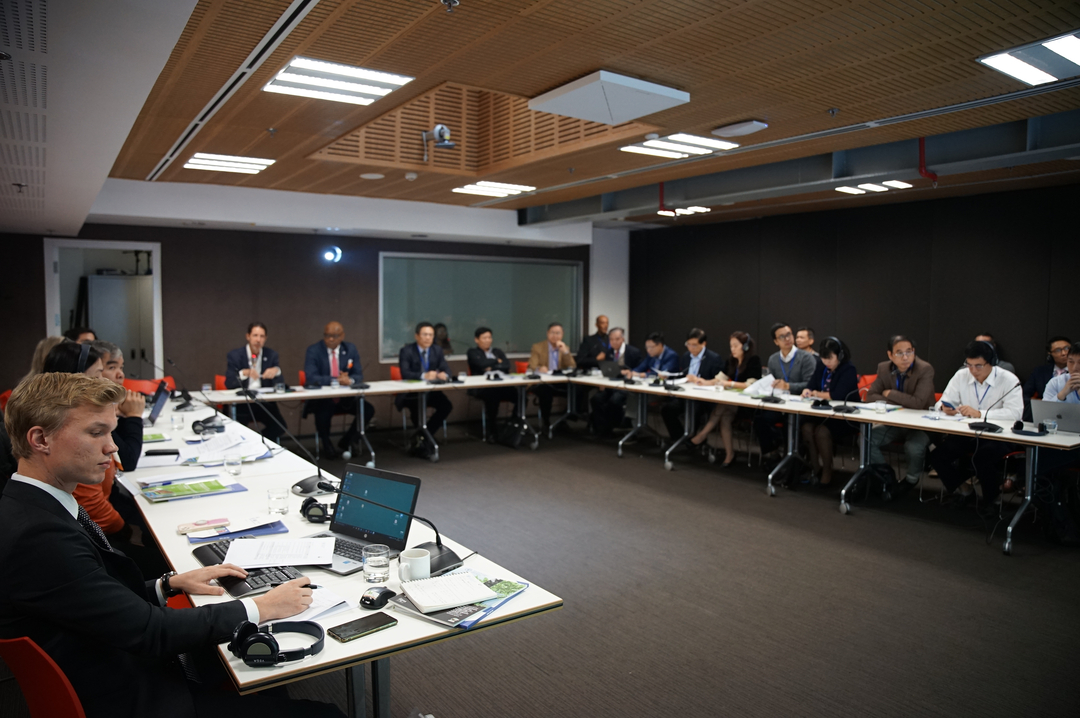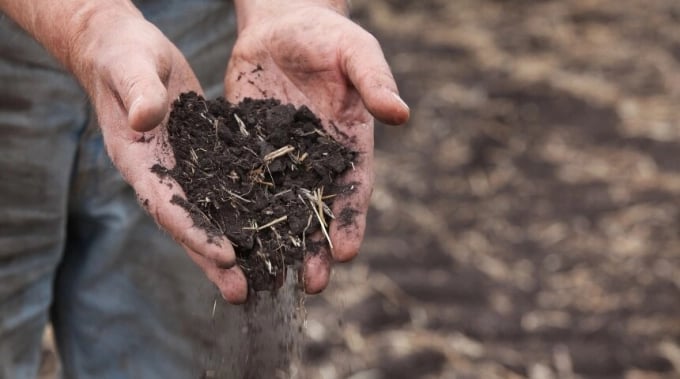May 24, 2025 | 16:23 GMT +7
May 24, 2025 | 16:23 GMT +7
Hotline: 0913.378.918
May 24, 2025 | 16:23 GMT +7
Hotline: 0913.378.918

The kick-off meeting "Support for the development of the national soil health strategy and action plan" saw the attendance of many researchers, experts, and agricultural policymakers.
In Vietnam, soil health is facing many issues. Although the main degradation processes affecting the country's soils are well known, no detailed analysis of the state of Viet Nam's soil has been conducted and there is no monitoring system in place to examine how management practices are affecting soil health or the positive impact that some interventions to improve agricultural sustainability and climate change adaptation and mitigation may be having.
The lack of updated information on soil resources is considered a significant barrier to sustainable soil management. According to Dr. Tran Minh Tien, Director of the Soils and Fertilizers Research Institute (SFRI), the project titled "Support for development of national soil health strategy and action plan" is designed with the primary purpose of supporting the development and roll-out of a National Soil Health Strategy (NSHS) and the National Plan for Soil Health Management (NP-SHM) 2022-2026, which will contribute to an agroecological and sustainable transformation of Vietnam's food systems.
Under this Technical Cooperation Programme (TCP) framework, FAO will provide technical assistance to review the NP-SHM 2010-2020; analyze and stock-take relevant global frameworks and approaches as well as models and best practices on Soil Health management.
It is expected that the NSHS and NP-SHM would comprehensively address the fundamental challenges as above mentioned, particularly a systemic approach to the management of soil health in the context of climate change and global trade integration; integration of plant health, plant nutrition, food security quality, and nutrition; integration of social protection and inclusive growth (e.g. pro-poor, woman and youth empowerment and inclusiveness); comply with and contribute to environment protection, ecosystem, and biodiversity conservation; and attribute to increased competitiveness of Vietnamese agriculture in domestic and global markets.
The TCP has been approved on the 30th of September 2022 and was launched during the kick-off meeting on the 9th of December in Hanoi. The objective of the kick-off meeting is to mobilize all concerned stakeholders in the preparation of operationalizing the activities of the TCP/VIE/3901 - "Support for development of national soil health strategy and action plan".
Key activities of the meeting included advice on the work plan based on the contents of the project document, and agreeing on the work/action plan to implement the project, including immediate next steps.
While being at the center of the sustainable food system transformation, soil also plays a key role to mitigate climate change by storing large amounts of carbon – if managed properly and responsibly. This carbon storage is, in turn, crucial to soil health, fertility, and ecosystem services, including food production. While working to improve one, we also work toward improving the other.
"As a longstanding partner of the Government of Vietnam, FAO is committed to continuing our support for sustainable and responsible management of our soils, improving livelihoods of everyone – leaving no one behind," said the Representative of the Food and Agriculture Organization of the United Nations (FAO) in Viet Nam Rémi Nono Womdim.

Through the project, FAO expects food nutrition to be improved, soil biodiversity, and people's livelihoods to be protected.
The FAO representative also emphasized the realization of the Government of Vietnam's vision through this project, thereby improving the nutrition of the food that we eat will be improved while, protecting biodiversity hosted in the soil, and the livelihoods of smallholder farmers would be safeguarded and contribute to reducing the carbon released into the atmosphere.
"The partnership between the Soils and Fertilizers Research Institute and the Food and Agriculture Organization is timely. Together we will support Viet Nam to become a leader and role model in sustainable and responsible soil management. As the representative of the Food and Agriculture Organization in Vietnam, I reaffirm our commitment to improving the conditions for healthier soil and establishing best practices through the project activities and beyond," said Mr. Rémi Nono Womdim.
At the project kick-off meeting, experts, policy researchers and representatives of relevant institutes and universities also exchanged and contributed many ideas and suggestions for the project to be successfully implemented in Vietnam with the common goal of improving soil health, toward the development of ecological and sustainable agriculture.
Translated by Linh Linh

(VAN) The People's Committee of Tra Vinh province has approved an adjustment to the investment policy for the Green Hydrogen Plant project, increasing its area to approximately 52.76 hectares.
![Reducing emissions from rice fields: [2] Farmers’ commitment to the soil](https://t.ex-cdn.com/nongnghiepmoitruong.vn/608w/files/news/2025/05/05/dsc08881jpg-nongnghiep-140632.jpg)
(VAN) Clean rice cultivation model in Thuong Tan commune, Bac Tan Uyen district, is assisting local residents in achieving sustainable agriculture by substantially reducing costs, increasing productivity, and protecting the environment.

(VAN) At the conference to disseminate Resolution No. 68, AgriS introduced its digital agricultural ecosystem and reaffirmed its commitment to accompanying the Government in promoting private sector development and sustainable agriculture.

(VAN) 'Blue Ocean - Blue Foods' initiative is designed to restore marine ecosystems and establish sustainable livelihoods for local communities by cultivating a minimum of 1,000 hectares of cottonii seaweed in the first three years.
/2025/05/21/4642-3-112707_603.jpg)
(VAN) The V-SCOPE project has made direct contributions to three out of six pillars of the Comprehensive Strategic Partnership between Vietnam and Australia.

(VAN) Facing the threat of rabies spreading to the community, Gia Lai province urgently carries out measures to vaccinate dogs and cats on a large scale.

(VAN) Disease-free livestock farming not only protects livestock herds but also stabilizes production and livelihoods for many farmers in Tuyen Quang.